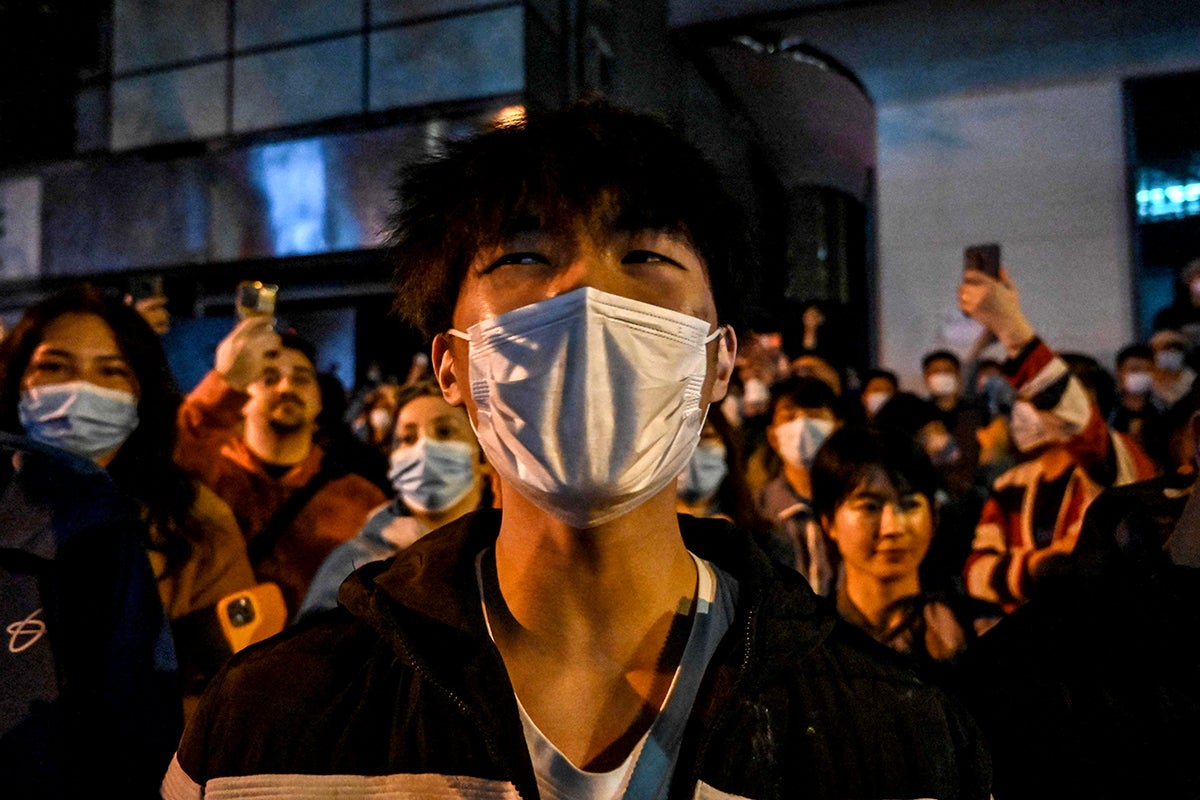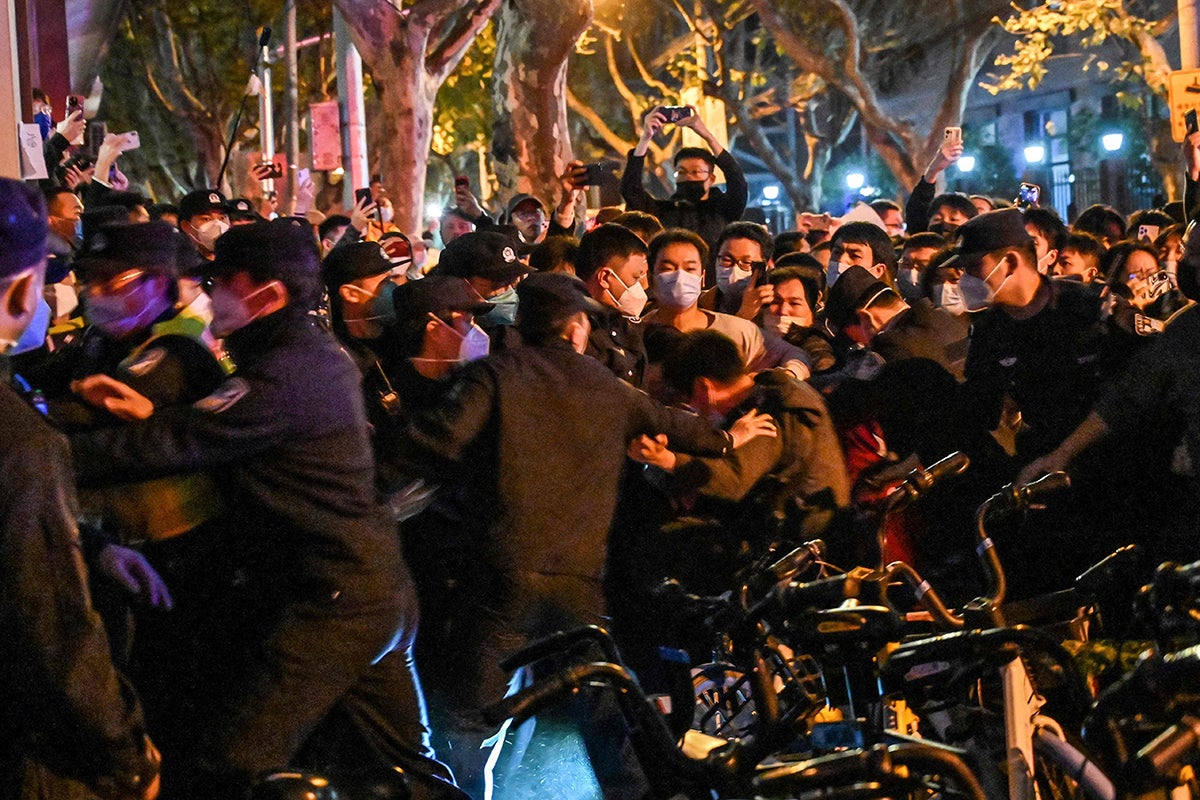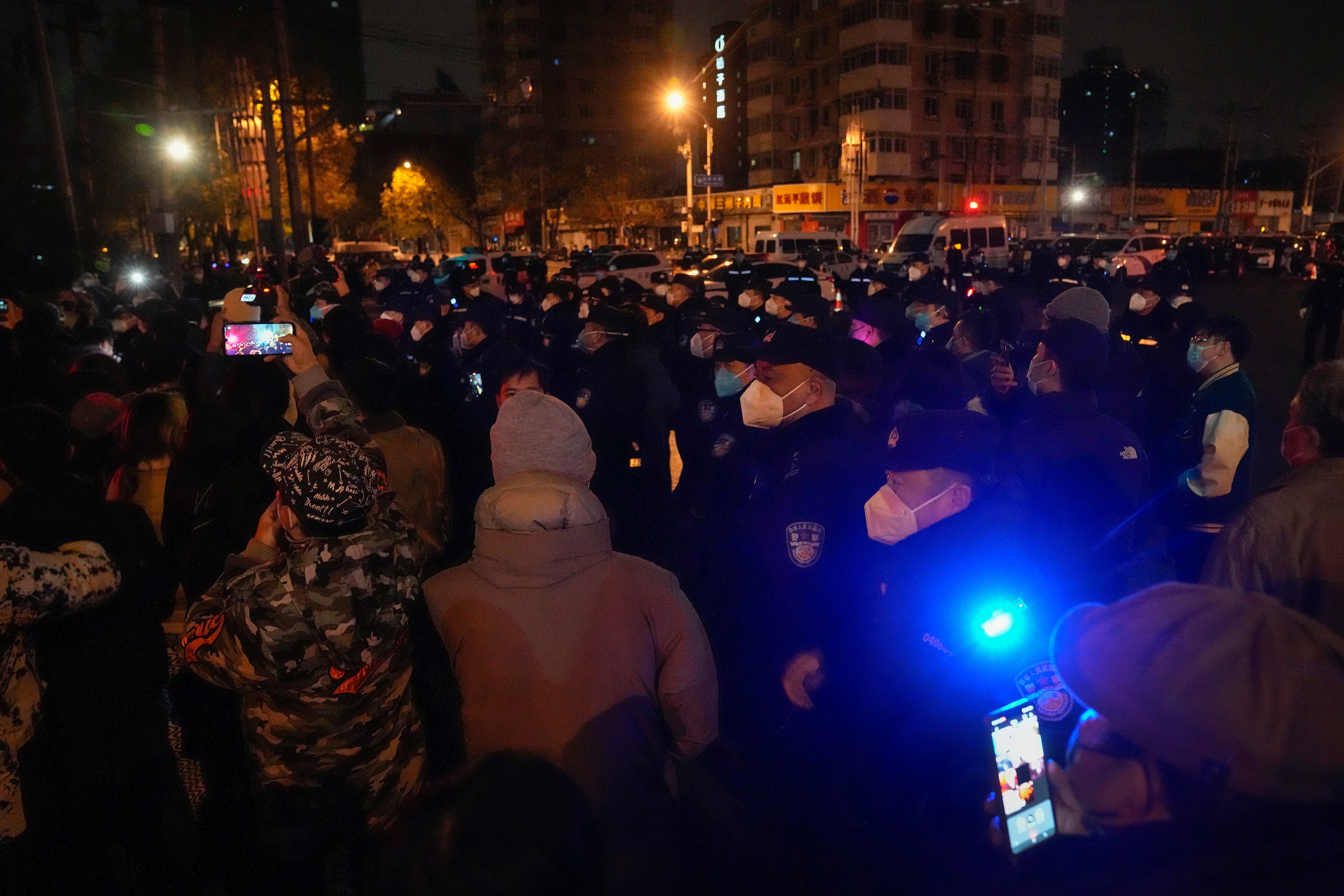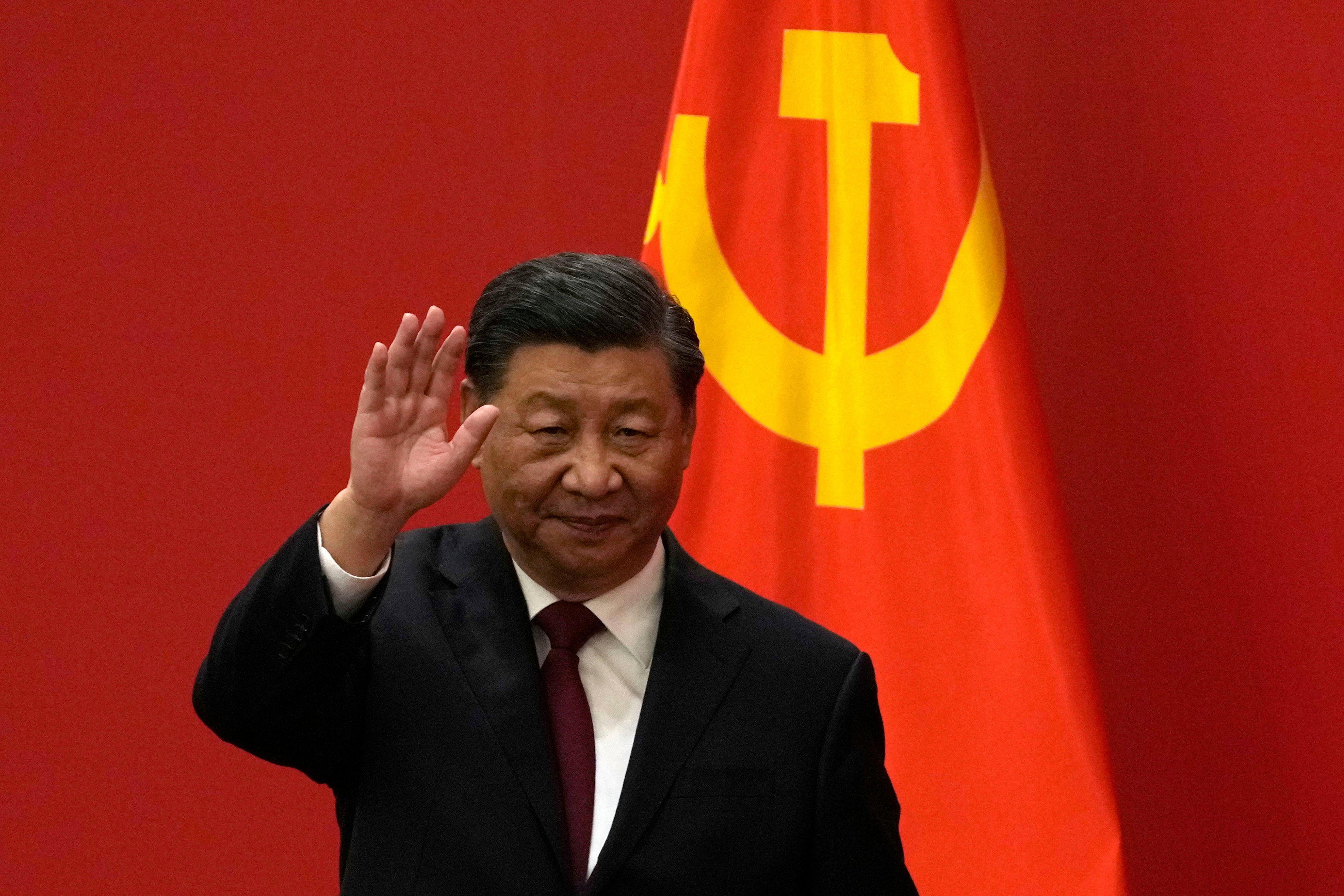China Covid protests: Why are people demonstrating in Shanghai?
Demonstraters take to the streets in Beijing and Shanghai, with some chanting ‘down with the Chinese Communist Party’
Your support helps us to tell the story
From reproductive rights to climate change to Big Tech, The Independent is on the ground when the story is developing. Whether it's investigating the financials of Elon Musk's pro-Trump PAC or producing our latest documentary, 'The A Word', which shines a light on the American women fighting for reproductive rights, we know how important it is to parse out the facts from the messaging.
At such a critical moment in US history, we need reporters on the ground. Your donation allows us to keep sending journalists to speak to both sides of the story.
The Independent is trusted by Americans across the entire political spectrum. And unlike many other quality news outlets, we choose not to lock Americans out of our reporting and analysis with paywalls. We believe quality journalism should be available to everyone, paid for by those who can afford it.
Your support makes all the difference.Rare protests broke out in China over the weekend as residents railed against the government’s strict “zero Covid” policy.
Widespread demonstrations are unprecedented in the country since the army crushed the 1989 student-led pro-democracy movement centered on Beijing’s Tiananmen Square.
But over the weekend, citizens in the capital Beijing and Shanghai took to the streets demanding an end to harsh lockdowns.

During the demonstrations, some shouted “down with the Chinese Communist Party”, in scenes unprecedented since President Xi Jinping assumed power a decade ago.
We look at what the protests are about and what the response has been so far.
What is zero Covid?
At the height of the Covid pandemic, China imposed a harsh lockdown as it tried to stop the virus from spreading.
The Communist Party-ruled country stopped people from leaving their homes, with pictures showing entire apartment blocks sealed up and residents not allowed out.
Despite much of the rest of the world relaxing restrictions this year, China continues to follow a policy of zero Covid.
This means that citizens are still subject to lockdowns, quarantine and mandatory testing to stop the virus spreading.

What has sparked the protests?
The protests were sparked by a fire that killed 10 people in an apartment block in Urumqi - a city in the Xinjiang province in the northeast - on Thursday. Officials said that nine other people were injured in the blaze.
Locals claimed the fire engines responding to the fire were unable to get close enough to the building because of either pandemic control barriers or parked cars belonging to owners locked in quarantine, claims denied by officials.
Protesters were heard shouting “end the Covid lockdown” and tearing down barriers installed as part of China’s zero-Covid policy.

What has happened to journalists covering the demonstrations?
The Chinese police have been accused of assaulting a BBC journalist covering the protests.
“The BBC is extremely concerned about the treatment of our journalist Ed Lawrence, who was arrested and handcuffed while covering the protests in Shanghai,” a spokesperson said on Monday.
“He was held for several hours before being released. During his arrest he was beaten and kicked by police.
“This happened while he was working as an accredited journalist.
“It is very worrying that one of our journalists was attacked in this way whilst carrying out his duties.”
Mr Lawrence, a senior journalist and camera operator for the BBC’s China bureau, was seen being dragged by the police in videos on social media while he was live tweeting from the site.
In one video, he could be heard saying: “Call the consulate now!”
On Monday morning, the UK’s business secretary Grant Shapps also criticised the handling of the incident.
“There can be absolutely no excuse whatsoever for journalists who are simply covering the protests going on, for being beaten by the police,” he said. “I know that’s a considerable concern.”
China disputed the account and claimed the journalist had not identified himself as a reporter.
What has the reaction been?
China, an authoritarian state, has been detaining protesters and several people were arrested at a site in Shanghai on Monday where demonstrations had taken place two days in a row.
The country says it has no plans to end its zero-Covid policy.
But commentators have warned that China’s leaders have backed themselves into a corner.
“Zero Covid was supposed to demonstrate the superiority of the ‘Chinese model,’ but ended up demonstrating the risk that when authoritarian regimes make mistakes, those mistakes can be colossal,” said Andrew Nathan, a Chinese politics specialist at Columbia University.

Mr Nathan edited The Tiananmen Papers, an insider account of the government’s response to the 1989 protests.
“I think the regime has backed itself into a corner and has no way to yield,” he added. “It has lots of force, and if necessary, it will use it,” Mr Nathan said. “If it could hold onto power in the face of the pro-democracy demonstrations of 1989, it can do so again now.”
What do protesters say?
Syler Sun, a 30-year-old who works in the advertising industry in Shanghai, said he thought the protests were a good thing.
"I think what happened last night is a good thing,” he told reporters. People are unhappy and they have to send a message to authorities and make them a bit uncomfortable.
"We need some changes. But as for what these changes will be, I don’t know and I’m not smart enough. You can have zero-Covid, but you can’t have a healthy economy, and you can have a healthy economy, but you can’t have zero-Covid."
Jason Sun, a college student in his twenties, also in Shanghai, said he was against strict lockdowns.
"What we object to is these restrictions on people’s rights in the name of virus prevention and the restrictions on individual freedom and people’s livelihoods.
"I’m a student, and every time I want to leave campus, I have to report to the leader and get his approval in order to leave. I can’t just leave freely to go where I want to go and live my life. My grandmother got sick and I had to report to the campus leader in order to go see her."

Shi, a 28-year-old arts sector worker, said she wants a “normal life”.
"We hope to end the lockdown and allow those who tested positive to have their quarantine at home. We hope they can avoid being transferred to quarantine centres and that others within the same compound or building will not be forced into a lockdown if there’s any positive cases," she said.
"We want to live a normal life. I think we should all bravely express our feelings. I don’t know the impact this will bring, but these actions will inspire people around us to express their appeals and protect their own rights.
“I’m not afraid to come here today. I didn’t know what would happen, but there’s no reason for me to not come."




Join our commenting forum
Join thought-provoking conversations, follow other Independent readers and see their replies
Comments